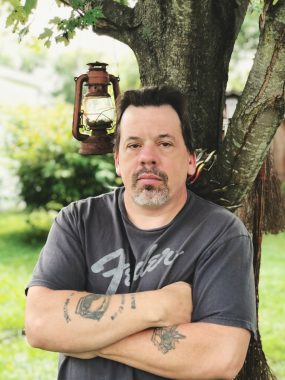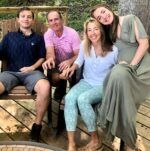The Importance of Fostering Good Patient-doctor Relationships
Written by |

Much of what we know about Charcot-Marie-Tooth disease (CMT), and often take for granted, is relatively new information. Many of the breakthroughs in our understanding of treatments, genetic subtypes, orthotics, and surgery have come about in the last 40 years. But there’s still a lot we don’t know.
Though there are reasons to be optimistic, we don’t yet have a cure. And there are many symptoms, particularly respiratory ones, that require more research.
It’s an exciting and pivotal time for CMTers. And because of this, we have some responsibility. Recent CMT breakthroughs took a great deal of effort, and we must ensure that things don’t stop here.
Such progress requires curiosity, seeking connections with other CMTers, self-advocacy, acting with empathy, and not dismissing those who are in pain or struggling.
I never felt the pressure to advocate until I met other CMTers outside my family. By myself, I felt unlucky perhaps, but my CMT symptoms were “normal” for me — a reality I could learn to adjust to. It was only when I realized how common CMT is that I began to feel that the lack of resources for our community borders on an injustice.
The topic has been on my mind lately, and I wanted to discuss it with someone. So a couple weeks ago, I decided to give Kenny Raymond a call — someone who always seems to have a finger on the pulse of the CMT community.

CMT advocate Kenneth Raymond. (Courtesy of Kenneth Raymond)
Some may know Raymond as the author of “CMT-Associated Genes and Their Related Subtypes: The Definitive Guide.” Others may know him as that guy people tag in CMT Facebook groups to request help understanding a CMT term or diagnosis. He’s a member of the Charcot-Marie-Tooth Association advisory board and runs a blog and podcast called “The Cryptid Sloth.”
In his pursuit to satiate his own curiosity about CMT, Raymond has become a prominent voice highlighting the importance of CMT advocacy and being stewards of our own care.
The latter stood out to me in our conversation. Perhaps a critical part of CMT awareness and advocacy takes place in the doctor’s office, in the relationship between patient and provider.
“How many times do you walk into a doctor’s office and they are just as confused as the patient?” Raymond said on our call. “In many situations, you say CMT and you get a deer-in-headlights look. And that’s true of all rare diseases.”
Indeed, many CMTers worry about doctors being unfamiliar with our symptoms.
I wish that were different, of course, but perhaps it’s a useful opportunity to both educate and learn. Throughout our conversation, Raymond emphasized how we should ask questions of our caretakers and be a team player when working with our physicians.
“The doctor who can say ‘I don’t know’ is a far better doctor than one who thinks they know it all,” Raymond said.
It’s preferable to have a relationship with your physician that allows both parties to learn from each other. That’s the kind of rapport Raymond has with his team of doctors, and it’s the kind of relationship he wishes for every CMTer.
Raymond explained to me that it’s not uncommon for him to walk into a doctor’s office with peer-reviewed scientific papers. Because he has a solid level of understanding from years of research, he feels confident enough to discuss his health and ask thoughtful questions.
I’m beginning to understand that this is a crucial type of advocacy: fostering a healthy relationship with our physicians and the experts who have a major impact on our well-being.
It’s not necessarily easy, though. As Raymond said, “Being stewards of our own healthcare requires us to do some homework. And it’s true of not just CMT, but with all rare diseases.”
It seems we all have homework to do, relationships to build and deepen, and empathy to practice. It’s an exciting and pivotal time, indeed.
Note: Charcot-Marie-Tooth News is strictly a news and information website about the disease. It does not provide medical advice, diagnosis, or treatment. This content is not intended to be a substitute for professional medical advice, diagnosis, or treatment. Always seek the advice of your physician or other qualified health provider with any questions you may have regarding a medical condition. Never disregard professional medical advice or delay in seeking it because of something you have read on this website. The opinions expressed in this column are not those of Charcot-Marie-Tooth News or its parent company, Bionews Services, and are intended to spark discussion about issues pertaining to Charcot-Marie-Tooth.







Martha AURELIA Shaw
I’ll be 90 in November and appreciate the comments I have found on this site.. I was diagnosed with CMT in 2008. I have many of the symptoms others have, but am so fortunate to be able to exercise every day. I cannot walk without a walker because of poor balance,
Do not be too hasty to judge your doctor’s lack of knowledge. My neurologist tells me I have Parkinson’s symptoms .and does not address CMT.. So how do I educate him. I have stutter steps, no tremors and no speech problems.
.